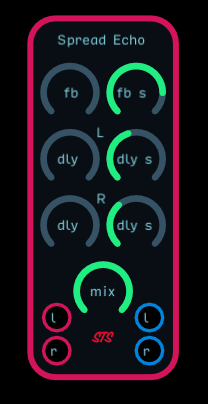I’d love to create a reverb that does this - basically what happens is sound propogates through the ice and the further it goes, the frequencies separate from one another. Faster vibrations move more rapidly through the ice and get decoupled from the original impulse and reflect back sooner. It’s the same principle that created the blaster sound in Star Wars where they hit a telephone pole lynch wire with a wrench.
Probably going to need a degree in calculus to make it or understand the papers already written about it lol.
1 Like
That’s part of the characteristic sound of a spring reverb as well. You get the same kind of frequency dispersion. One of the reasons they’re so hard to model. You could split the sound with a bank of filters and apply a separate delay to each. It would be approximate and undoubtedly CPU heavy but I might modify the filter bank from the vocoder and see what happens.
2 Likes
I think you’ll like this.
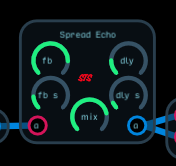
fb - feedback
fb s - feedback spread - increases the feedback at lower frequencies so that the high frequencies decay first.
dly - delay time
dly s - delay time spread - increases the delay at lower frequencies
The total feedback is clamped at 1 so as you raise the feedback level the spread has less effect.
** see below for a newer version.
3 Likes
I like the part at the tail end of the recording where someone asks if they can talk. LOL.
That’s actually really nice! It’s almost like the uVerb without the allpass filters. I also like the mini delay nodes with SVG labels.
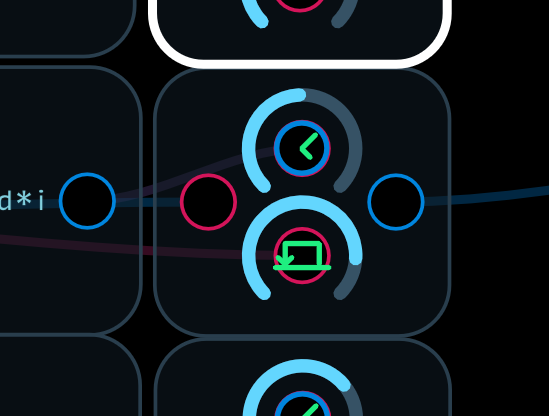
1 Like
re-uploaded the patch. I didn’t realize it was inside an earlier group. added a level trim for the delay spread.
1 Like
The delay node was way too big to use without shrinking it. I had the SVGs so it made sense. Reducing the delay spread makes for a more interesting sound I think.
2 Likes
I noticed that things kind of asymmetric at full mix
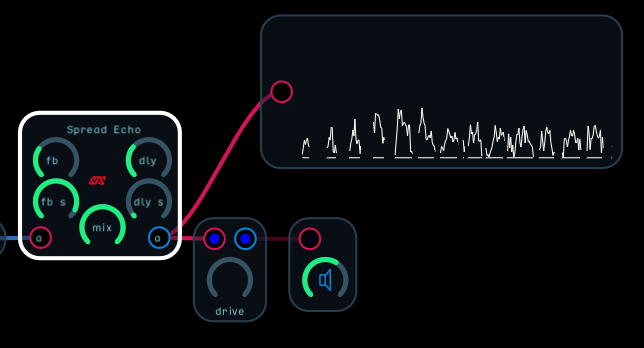
so I put in an DC blocker
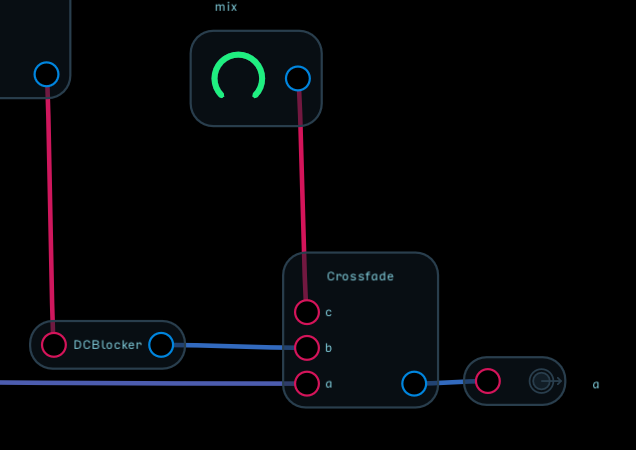
and now it’s playing nice
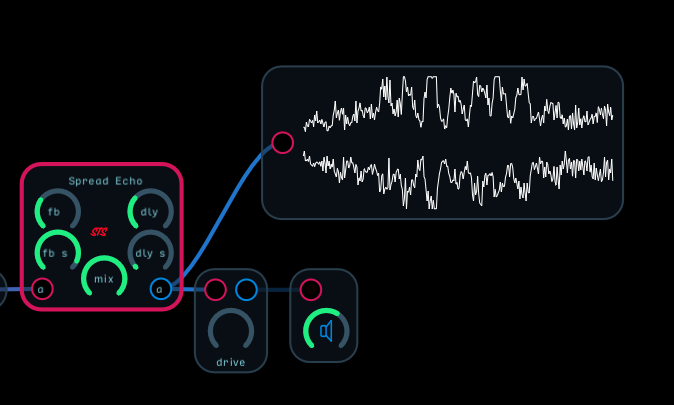
Thats interesting. I wouldn’t have expected that. I’ll have to see if I can figure out why.
2 Likes
It’s some kind of phase interference. The biquads introduce some phase shifting and of course the variable delay does as well. I think your solution is probably the best approach.
Frequency dispersive echo V1.1.audulus (626.7 KB)
2 Likes
Amazing patch! And you did it so quickly too! 
Frequency dispersive echo V1.1 Sequencer Demo.audulus (1.3 MB)
Here’s a demo with a sequencer attached so if you don’t have a keyboard handy you can hear what it sounds like. I also set it up in stereo for even more weirdness. At real short delay times it makes a surprisingly good plate/spring reverb.
1 Like
How can this be a spread delay without a stereo spread 
2 Likes
I did some more digging andI thought there was some kind of error in the bi-quads. After double-checking I decided that the negative skew is the result of an asymmetric waveform from the uFSK oscillator I chose for the demo. With a symmetric input there’s no problem. The DC blocker looks like the best fix so no need to update the last post.
1 Like
Awesome demo. I love the stereo spread. Might make a good library module with the stereo included
1 Like
I liked the stereo so much I bundled two together:
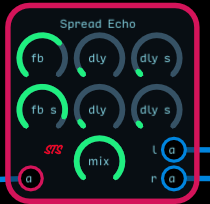
Frequency dispersive echo V 2.0 Sequencer Demo.audulus (1.3 MB)
2 Likes
That’s a monster! Really cool patch.  Looking at your patch I think the UI could be taller and narrower.
Looking at your patch I think the UI could be taller and narrower.
Great module though very DSP intensive.
1 Like
Yeah it’s a real hog. Internally it has 32 delay lines and 96 bi-quad filters so it’s not too surprising. You can cut the CPU in half by converting it back to mono. The current unit is actually two echos paired up in a single module. If that’s still too heavy you can reduce the number of bands. Currently it has 16 half octave bands per channel, 8 would also work but the effect wouldn’t be quite as dramatic. If I get a chance today I may put together a “lite” version.
2 Likes
Here a much less CPU intensive version. It’s mono and has 8 bands rather than 16. That’s 8 delay lines and 24 bi-quads. The demo runs at about 30% on my iPad Air 2 but a lot of that is the ADSRs and PM oscillators
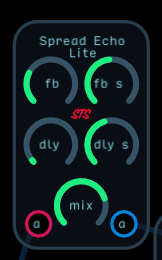
Spread Echo Lite V2.1 Demo.audulus (817.5 KB)
6 Likes






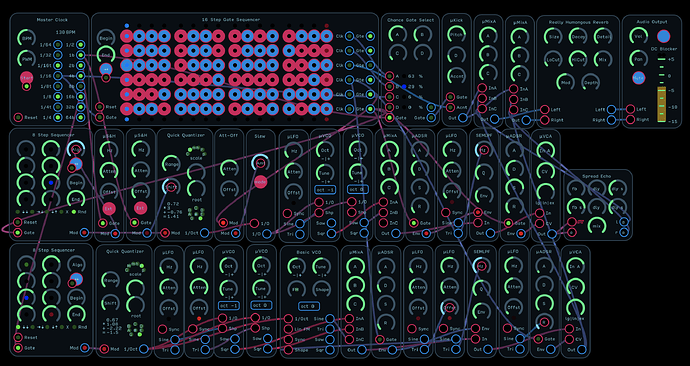
 Looking at your patch I think the UI could be taller and narrower.
Looking at your patch I think the UI could be taller and narrower.